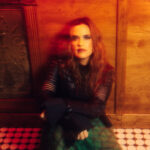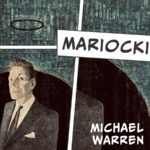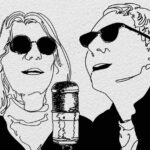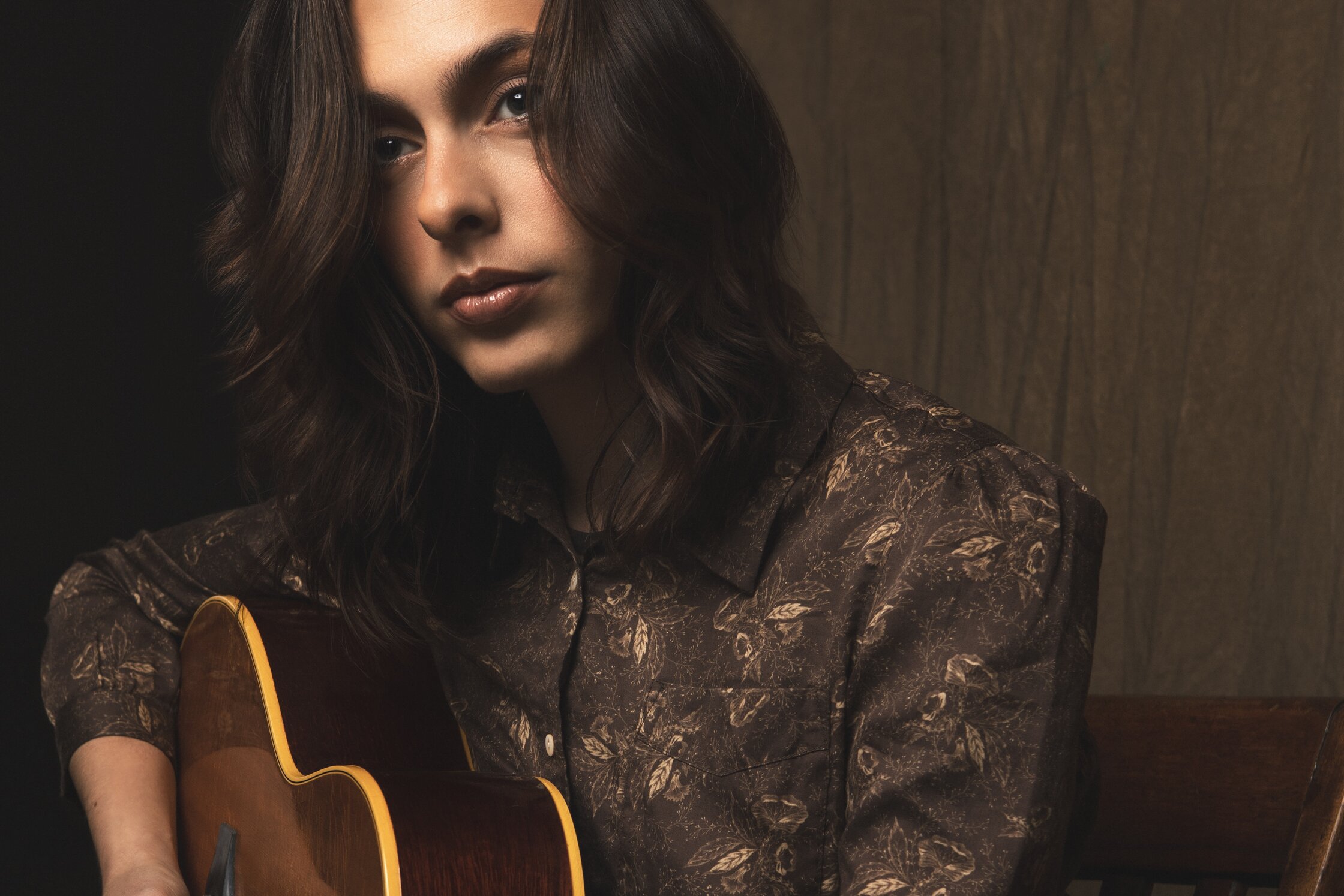
Juliette Stewart doesn’t fit into a neat little box, and she’s proud of it. She’s a Queens-born, formally trained vocalist who can belt like a Broadway star, but she’s chosen the gritty road of “outcast country”, not because she’s been exiled, but because she doesn’t give a damn about colouring inside the lines. Her music is a collision of folk, country, rock, and whatever else she feels like throwing into the mix, and her lyrics? They cut deep, like conversations you weren’t supposed to overhear.
She’s got the stories, she’s got the scars, and she’s got a voice that refuses to be ignored. In her interview with Jason Barnard, Stewart talks about the industry’s lingering biases, and why she’s just as likely to be found reading self-improvement books as she is plotting her next murder ballad. If you think you know what a country artist sounds like, she’s here to prove you wrong.
You refer to your music as “outcast country.” Is this a critique of the mainstream country scene, or a reflection of your personal journey within the music industry?
That definitely is not a critique by any means but rather an affectionate and silly play on “outlaw country” that I call myself from a place of empowerment. Music has always been a respite or even a church for those who seek community. It is a place where everyone from every walk of life can come together, put their differences aside and be united in celebration. I am in a unique and exciting part of my career where I get to build the feeling I want my shows and music to embody from the ground up. I strive to create a space with my music and for those who listen to it to come and feel welcomed as they are, for everything they are. I want to make music for everyone.
I also don’t fit perfectly in the bow wrapped genre of “country.” I’m a girl from New York City, I draw from many styles of music, I am not going to hit the mark perfectly even when I try to. But that isn’t a negative thing at all! I think in missing that mark you land on something different, and what that is can be equally beautiful. That slight departure gives me a lot of freedom, and maybe it can for the listener too.
How has your upbringing and formal musical training influenced you?
Technically speaking it helps a lot with vocal sustainability. I have enough (25 years of!) proper training under my belt to be able to do three hour gigs multiple days a week and to stay in good vocal health and for that I am so grateful. You have to learn what the rules are in order to break them. I had to learn how to sing like everyone else in order to keep what I need and unlearn the rest to discover my own voice. Having studied music history and theory intensely has helped me feel qualified to walk into a room and be a communicative and well rounded band leader and member. I got lucky with parents who introduced me to a lot of music early on. I was listening to Motown and Bluegrass with my dad and women like Linda Rondstat and Joni Mitchell with my mom. Together we’d have Simon and Garfunkel on repeat. They brought me to concerts and classical music and jazz and musical theatre and anything that put me on the edge of my seat as a kid. I really owe it to them for opening me up to so much early on that has carried into adulthood tenfold.
Do you view songwriting as a therapeutic outlet, a storytelling medium, or something else entirely?
I have always been driven by story and that is no different in my songwriting. Lyrics come first for me whenever I write. I was also an actor growing up alongside my focus on music. I’m Italian, it’s in my blood to talk a lot..like a lot. From early childhood I never wanted to play, I wanted to sit around the table with the older women and listen to their stories told with such passion. I’ve always wanted to be just like them. I try to center my life around quality time with loved ones where we put our phones down and just talk. I think one of my biggest fears is the loss of the art of storytelling and conversation. There is a level of therapy in telling stories in song and hearing a story that you relate to in a song. At this point I draw mostly from personal experience in my writing. The best way I have ever known to convey how I feel is through music. That is how it’s always been for me.
When you’re not making music, what kind of art, books, or films do you gravitate toward? Do they bleed into your songwriting in unexpected ways?
My guilty pleasure is “self improvement” books and podcasts. I’m a huge fan of Glennon Doyle, Brene Brown, Elizabeth Gilbert and the like. I love the female writers championing the genre and research of social sciences. I think you need to be curious about how and why you function the way you do and what that looks like in relation to other areas and people in your life to be able to write about it in a song. I have a huge passion for vintage, especially in sourcing vintage finds for stagewear. I find myself lost in fashion and decor books like “How the West Was Worn: A Complete History of Western Wear” and Athena Calderone’s “Live Beautiful.” A lot of the music I write is inspired by an older sound; classic and timeless folk and country music. I am most completely indulged however in any media that has to do with drama, crime, and murder. I come from a family of detectives and medical professionals, so it’s what I know. My favorite shows in kindergarten were (and still are) “ER” and “Law and Order.” I’m banking on that leading to writing a great murder ballad soon.
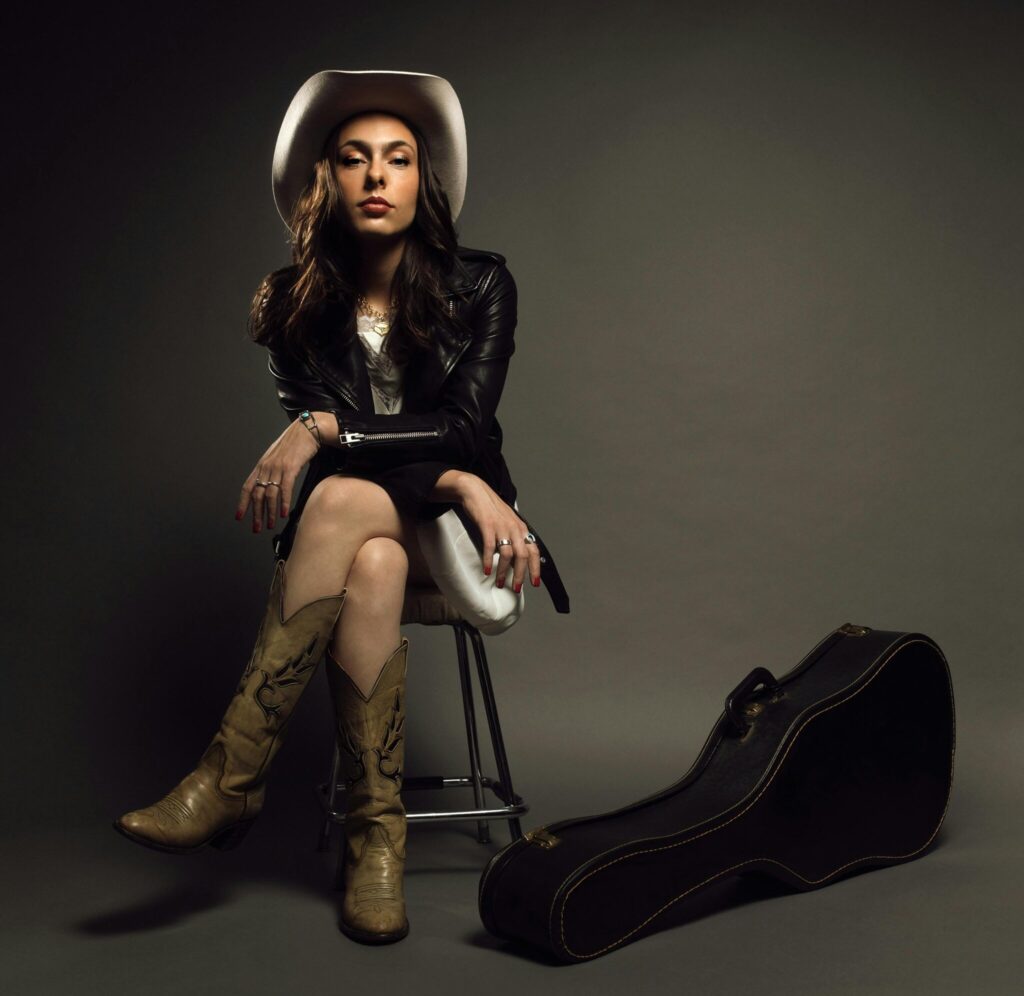
As a woman in the Americana genre, what specific obstacles have you encountered, and how have you navigated them?
The industry and the Americana and Country world has made such great strides. You can feel things truly shifting. We’re not there yet, but it is so encouraging to keep going and working for change. Yet you can go online right now and look at the percentages of women vs. men who are booked in popular festivals and the numbers are still striking; I’m talking most being high 90th percentile being men, low 10th percentile being women. That is not for a lack of an extremely talented pool of women to hire. That is a top down issue. According to “She is the Music” only 13.9% of executives in the top 70 major and independent music companies are women. On the smallest scale you can’t have a lineup of all women without it being an “all female lineup.” An all men’s lineup is just a “lineup.” You can’t give a female musician an accolade without her gender being included in the title. We’re held to an incredibly high standard and are for now still tokenized.
I’m usually one of the only if not the only woman in the room, especially in a band setting. I’ve been told that the “guys in the band” are the real meat of the music and my job is just to stand in front and look pretty. I’ve worked with musicians where all I am is the butt of all their sexual jokes. I’m always assumed to be just a “singer” not a real musician who knows what they’re talking about. I’ve had to really come into my own femininity and realize that I don’t have to act like “one of the guys” to be a good hang. The guys who dominate the industry can enjoy hanging out with me for exactly who I am. All of that I take in stride and I am happy to say has shaped who I am. That being said, there are also amazing men in the industry working to move the needle forward too because no one group of people can make this shift alone and it is happening.
The simple truth of it is yeah, I am going to take a little longer getting ready for the show, and while looking good and more importantly being a good person, I’m going to give the music my all, and that’s all that matters.
You incorporate covers into your live sets. How do you select these songs, and what do they reveal about your musical influences?
Who doesn’t?! I like to use covers as indicators both of where I come from, and where I want to go. They pay homage to who I feel has shaped my sound up to now and who I work to be like. They say it takes a long time for your skill to catch up to your taste, so it helps build that bigger creative picture of who you are to your audience. It can also be so much fun to come up with your own personal stamp on and interpretation of one of your favorite tunes.
What has been the most significant creative hurdle you’ve faced, and how did you overcome it?
At the risk of sounding corny I would say the abandon and audacity to believe in myself. This is a ruthless and lonely career path. You have to advocate for yourself tirelessly when no one else is. You have to be a little bit crazy. You have to put yourself out into the world in a naked and targeting way. There is no creative person on earth who doesn’t battle the love/hate relationship with the things they make. It is incredibly hard to be your number one supporter and push for yourself relentlessly when you’re in that artistic tug of war. I’m not sure I have overcome it, I think it will be a lifelong practice of mine to wake up every day and choose the unremitted fight for myself, even when that feels impossible, knowing there is such great reward in the relationship I build with myself and the world because of it.
You’ve worked with a variety of musicians and producers. Which collaborations have had the most impact, and what have you taken away from those experiences?
Why yes, I have really been so lucky! By far the most impactful relationship I’ve had is with producer and engineer Thom Panunzio. He has been a mentor of mine from the start of me making my debut EP. He’s helped me produce the tracks and has engineered them all. He is an unbelievable well of experiences and knowledge. I cherish the days we get together at his home studio and sit for 12-14 hours at a time bouncing between work and sitting over charcuterie while I get to listen to his mind blowing stories. I can listen to him speak forever and never get bored of it. It would be hard for anyone to name their favorite record without him having had his hands all over it. He started his career working for John Lennon at The Record Plant in the 1970’s and has since worked with everyone from Stevie Nicks to Bruce Springsteen to Tom Petty and that only scratches the surface. He has been a musical father figure to me, and an incredible teacher, like we’re old east coast Italian family. He will guide me when I need to be guided and sits back and lets me take the reins when I am going off. He is honest with me from start to finish of a song and always puts service of the song above anything else. His belief in me and encouragement has been so validating and has taught me so much about trusting my instincts. More than any of that he is a masterclass in humility and warmth, humor and hospitableness and is someone I intend to keep as a lifelong teacher and friend.
“Shame On You” has been described as raw and unapologetic. Is this track a cathartic release, a pointed critique, or something more nuanced that listeners might miss on the first listen?
Yes there is definitely nuance, it is already both of those things mentioned and more! I think when you’re going through a breakup so much isn’t black or white, both in cause and effect. There are feelings of betrayal and anger but it isn’t a straightforward condemnation. There is also self reflection of one’s own actions mixed with longing and nostalgia. The song explores vulnerability and defiance, heartache and liberation with a call for accountability, and reclamation of self-respect.
Can you tell us more about your plans for 2025, including your forthcoming EP?
I won’t give too much away but I am finishing up final recordings and finishing touches for the EP as we speak. It’s getting ready to be packaged up for release soon! It will definitely be out in the earlier half of this year. I’ve taken my time to make sure nothing feels half baked. It was recorded with Nashville’s best including ACM bass player of the year nominee Eli Beaird. I am so humbled by who I’ve gotten to help make these songs come to life.
2025 is looking like it’ll be quite a busy year. I am working on taking this suitcase of tunes on the road with me and spending this winter industry down time scheduling as many shows as I can for the coming months. I can’t wait to introduce this body of work to the world and hope to see you all out there.

